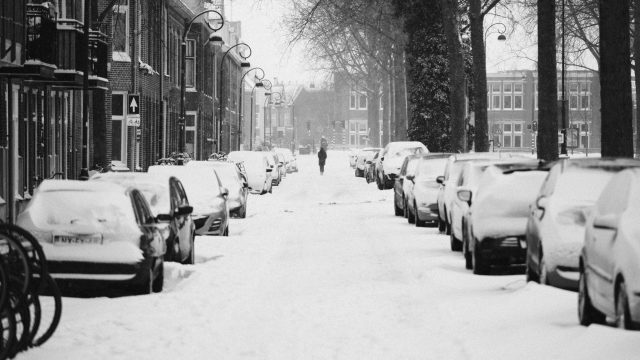September is Emergency Preparedness Month, and Chief John F. Sullivan and the Brookline Office of Emergency Management (OEM) would like to provide residents with tips to be safe in extreme weather situations.
All throughout September, Brookline OEM is reminding residents of the importance of being ready, being safe and being informed when emergencies arise.
Brookline’s Emergency Management Team encourages community members to use the following safety tips in the event of various weather incidents, including hurricanes, tornadoes, and winter weather.
Make an Emergency Plan
Have an emergency plan for how your family will communicate, evacuate and shelter in place should there be an emergency. An emergency plan should address the specific needs of all of your family members and those you are responsible for, including pets.
Learn the Terminology
Know the difference between advisories, watches and warnings, and know how each may affect your daily activities. The same terminology is used for many weather events, including winter storms, high winds, severe thunderstorms, tornadoes, flooding and excessive heat.
Know Your Evacuation Zone
Peak hurricane activity in the Atlantic occurs from August through October. To prepare specifically for hurricanes, please visit here to learn if you live or work in a hurricane evacuation zone.
The best action to protect yourself and your family from the flooding and high winds caused by hurricanes is to evacuate when ordered to do so, before those conditions hit your area. Know and follow the directions from local officials for community evacuation and follow posted evacuation routes.
If you live in an area that may flood and may need assistance evacuating, plan with family, neighbors, and friends who may be able to assist, and contact your local public safety officials to make them aware of your needs.
Know How to Prepare Your Home
Consider cutting weak branches and trees that could fall on your house. Make sure there’s nothing that could blow around during severe weather and damage your home, and move bikes, lawn furniture, grills, propane tanks and building material inside or under shelter. Keep drains, gutters and downspouts clear of debris. Cover up windows and doors by using storm shutters or pieces of plywood. Secure all doors on your property and find a safe location for your vehicle.
During and After Severe Weather
- Be aware of potential flooding.
- Call 911 to report emergencies and injuries.
- Stay away from downed wires or broken glass.
- Check your property for damage.
- Check on family, friends, and neighbors, especially the elderly.
- Stay out of damaged buildings until they are deemed safe by authorities.
- Continue to follow news and weather reports.
Preparing for a Winter Storm
- Keep your vehicle’s gas tank full so you can leave right away in an emergency and prevent the fuel line from freezing.
- Service snow removal equipment before the winter storm season and maintain it in good working order.
- Keep handy a warm coat, gloves or mittens, hat, water-resistant boots, and extra blankets and warm clothing for each member of the household.
- Learn how to protect pipes from freezing.
- Review generator safety: Never run a generator in an enclosed space. Make sure your carbon monoxide detector is working correctly and that the outside vent is clear of leaves and debris.
- Stay indoors and wear warm clothes.
- If you must go outside, protect yourself from winter storm hazards:
- Wear layered clothing, mittens or gloves, and a hat. Outer garments should be tightly woven and water-repellent.
- Cover your mouth to protect your lungs from severely cold air.
- Watch for signs of hypothermia and frostbite.
- Keep dry. Change wet clothing frequently to prevent a loss of body heat.
- Avoid overexertion, such as shoveling heavy snow, pushing a vehicle, or walking in deep snow.
- Walk carefully on snowy, icy sidewalks. Avoid taking deep breaths; minimize talking.
To learn more about Brookline’s Be Ready, Be Safe, Be Informed campaign, please visit here.

















